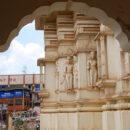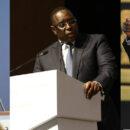Darfur: Why is the Doha Process Failing? Who is Responsible? (I)
This article is inspired by two events: The apparent loss and disorientation of the Joint AU/UN Chief Mediator for Darfur Mr. Djibril Bassole and the continued unbecoming statements from Mr. Bassole and from the Qatari State actors(1) dealing with the file. It is also inspired, in part, by the emerging news that Libya may be a revived actor in Darfur Political Settlement file.
After the Mediation travelled in all directions, talked to all people, begged all leaders, gathered all the Movements’ and Political Formations’ leaders, their relatives and friends, flew out IDPs, Refugees, Darfur Society, envoys and representatives of External Stakeholders, built and structured “Movement (s)” and split others they now decided to recess talks. One reason given is the Muslim Fasting Months that only started on August 12th (and one cannot see why talks do not continue during the Fasting Month). Another reason given is that the very IDPs/Refugees that were flown in to legitimize the lame talks between GOS and LJM have shocked Mediation with their maturity and solid ceiling of demands. A third reason that is not much publicized, is that all of a sudden, Mediation realized that the “Trade Mark” of “Rebel Movements” were still with Mr. Abdulwahid and Dr. Khalil. The talks partially recessed on July 23rd and are not expected to resume until end of August! Or may be after the Hajj (November 14th, 2010)!!
Mr. Djibril Bassole has requested the President of South Sudan Gen Salva Kiir to intervene to convince Abdulwahid and Khalil to join/rejoin the talks. This is the third time he makes that request directly or indirectly. Khartoum was quick to object. Mr. Bassole does not know that late Gen Yousif Ahmed Yousif met with late Dr. John Garang on a similar mission. Garang had considerable respect for the late General Yousif. The mission did not work and Garang advised Gen Yousif that the war was not about “Personal Grievances” that can be resolved through personal mediation. That a proper Political Settlement was needed. Why does Mr. Bassole assume that Dr. Khalil and Mr. Abdulwahid are not carrying legitimate causes in their struggle? Why, after he has failed, they would listen to anyone else for the third time? What can President Kiir do that he (Bassole), while wearing three hats of the UN/AU/LAS, has failed to do?
President Kiir can take an initiative of his/SPLM’s own fabric rather than saving the face of Mr. Bassole. Both Dr. Khalil and Mr. Abdulwahid need to be careful about ceremonial meetings and initiatives delved into without solid groundwork that improves the opportunity for yielding results. Abdulwahid sent a delegation that stayed in Juba for weeks on end and were finally –literally — asked to leave as Abdulwahid failed to show up.
Such an initiative needs to be between “Institutions” and on “Strategic” principles so that the parties can build on it and not between “leaders” and then the initiative evaporates into thin air (as it did before). It will be unwise if President Kiir expects Dr. Khalil and Mr. Abdulwahid to come to Juba right away. The timing of such an initiative is important so that the SPLM/A and GOSS are not occupied or pre-occupied with pressing issues. The “Objectives” and the raison de íªtre must also be clear and doable to avoid “Public Relations” Activities that are a waste of time. Can that happen without serious ramifications in the relations between GOSS and GOS?
Under Clement Ganda, under Edward Lino, under Aziz Al Hilo and with the involvement of Dr. Ann Ito and others, the SPLM has tried to build up a file and portfolio for Darfur and they failed. They must do things differently.
Sadig Al Mahdi was Prime Minister of Sudan during the Third Democracy. Between 1986 and 1989 he changed, dissolved, reshuffled his cabinet time and again thinking that it was “Them” and not “he” were to blame for failure of governance. He was wrong and he had to fall. Do we have a synonymous situation here involving Mr. Bassole?
It is pressing to call a spade-a-spade. Doha has failed; no mincing of words. The talks partially froze on July 23rd. There are signs of fragmentation within LJM and as we said before: Watch Mahgoub Hussien (2). The participation of the Movement that forms the spine of the rebellion in Darfur is on-hold and the gap between them and Mr. Bassole is widening by the day as he is trying to blame his failures on them. The other Movement with the wider popular support among the Fur Tribe (SLM Abdulwahid) never participated in the venue/process
If GOS/NCP were not still using the usual security lens to deal with Darfur/Movements, GOS should have been the first party to request the suspension of negotiations until, at least, JEM is back in the Process. We need to wait and see what will transpire from Dr. Ghazi’s statement that revision/re-evaluation needs to be done for Doha Process. We also need to see what he went out with to, and came back with, from Doha. Will that make both Mr. Bassole and Qatar stop and think/rethink? Not tactically, but strategically. Are they recessing the talks because he is miffed with Mediation?
The next article 2 shall concentrate on the model structure of mediation and what we have in Doha as Mediation and Process and identify the gaps. The last article 3 shall deal with the possible scenarios for the future.
Tag Elkhazin
Subsahara Centre-Ottawa
Tag El Khazin is a Canadian consultant practising in the social development and humanitarian fields of peacebuilding, conflict resolution, civil society assessment, political analysis, internally displaced persons, women and children affected by war, and community development.
(1) Both Sh. Ahmed bin Abdullah Al-Mahmoud and Sh. Hamad bin Jassim bin Jabir.
(2) Capsule Note # 6of Subsahara Centre, section: Crystal Balling, bullet # 4.






